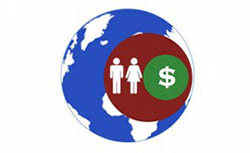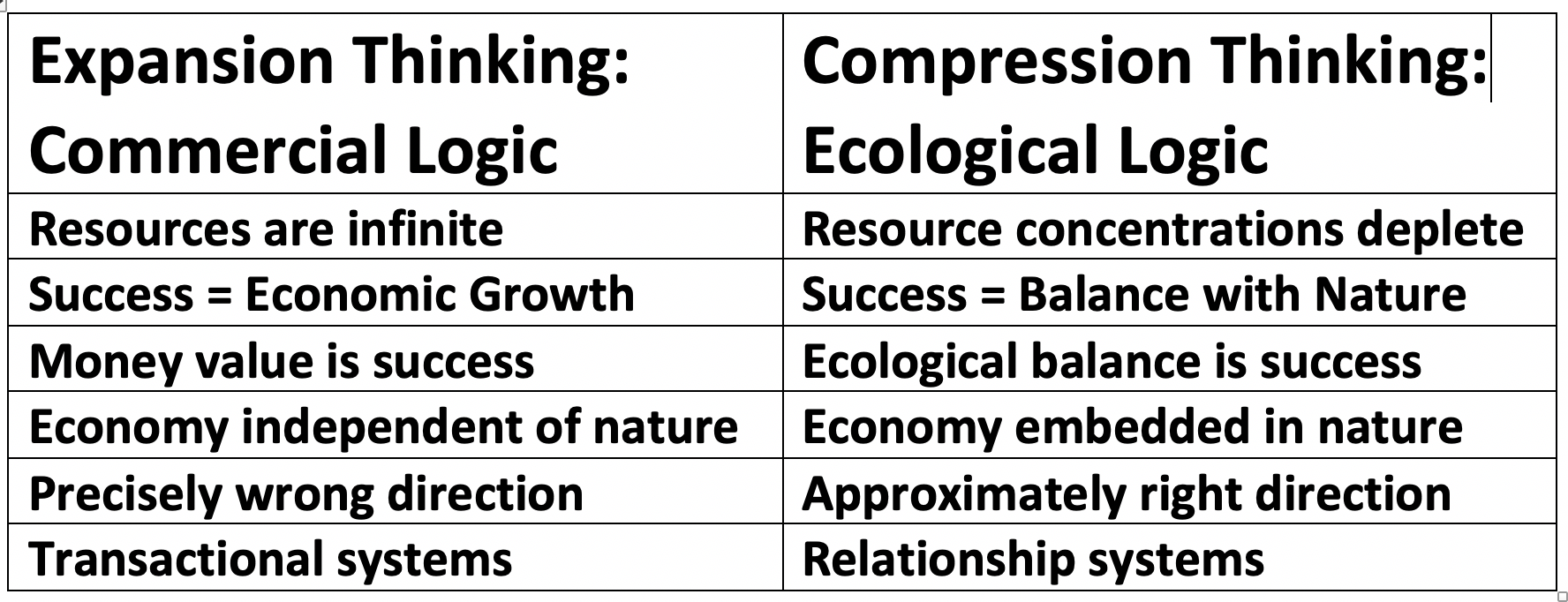
Expansion Thinking and Compression Thinking Do Not Mix
Intellectually, many of us understand that we need deep changes in our ways of life and in our economic institutions. However, we have become locked into transactional systems, the wonders of technology, and automated convenience that we cannot imagine doing without them. A different system of living is hard to imagine.
One idea is to revert to indigenous peoples’ ways of living. However, global ecologies are now too depleted for the remnants of indigenous people to live as they once did. Billions of people certainly can’t. We can learn from indigenous practices, but we have to invent a new balance with nature, if one is still possible. Some things to do are well-known, recycle, form much more localized economies, and so on. We can innovate many more. That is the quest of Compression Thinking.
Below we contrast expansionary thinking with Compression Thinking. “Compression” signifies more than “economic contraction,” an economist’s phrase meaning a temporary downturn in expansion. Compression is a reduction in extracting resources from earth, and disposing our waste back into earth. Success in Compression is surviving in a new balance with nature.

The table above may be a jolt, but it’s only a starting point. Everything changes. At a fundamental level. Nobody knows what future economies in balance with nature would look like. No blueprint of the future can be drawn. No simple templates will apply to everyone.
Everyone seriously into this kind of transformation realizes that the direction to head is toward frugal, localized, circular economic systems. People often start by growing food plants and becoming aware of food sources and nutrition. Then they advance to providing much more of whatever they need much closer to home. You can see where stuff comes from and where it goes. Balance with nature, the local ecology, starts to become a visible concern.
This, and more, transforms what we physically do. Financial systems need to change too, but they are not the driving force. People steeped for a lifetime in the commercial logic of unending expansion have difficulty comprehending this. Inside their box, it doesn’t compute. Their first thought is, “How much will this cost?” as if everything must have a cost, a price, and a market. Compression Thinking has to begin loosening the tight grip that expansion thinking has on the global population now.
Linking what has to be done on a global scale to whatever you can change right now is a stretch, but your little compost pile is a small start on revitalizing agricultural soil globally. We propose Compression Thinking as a starter guide for you to think your own way through your transformation, using whatever you have, wherever you are.
